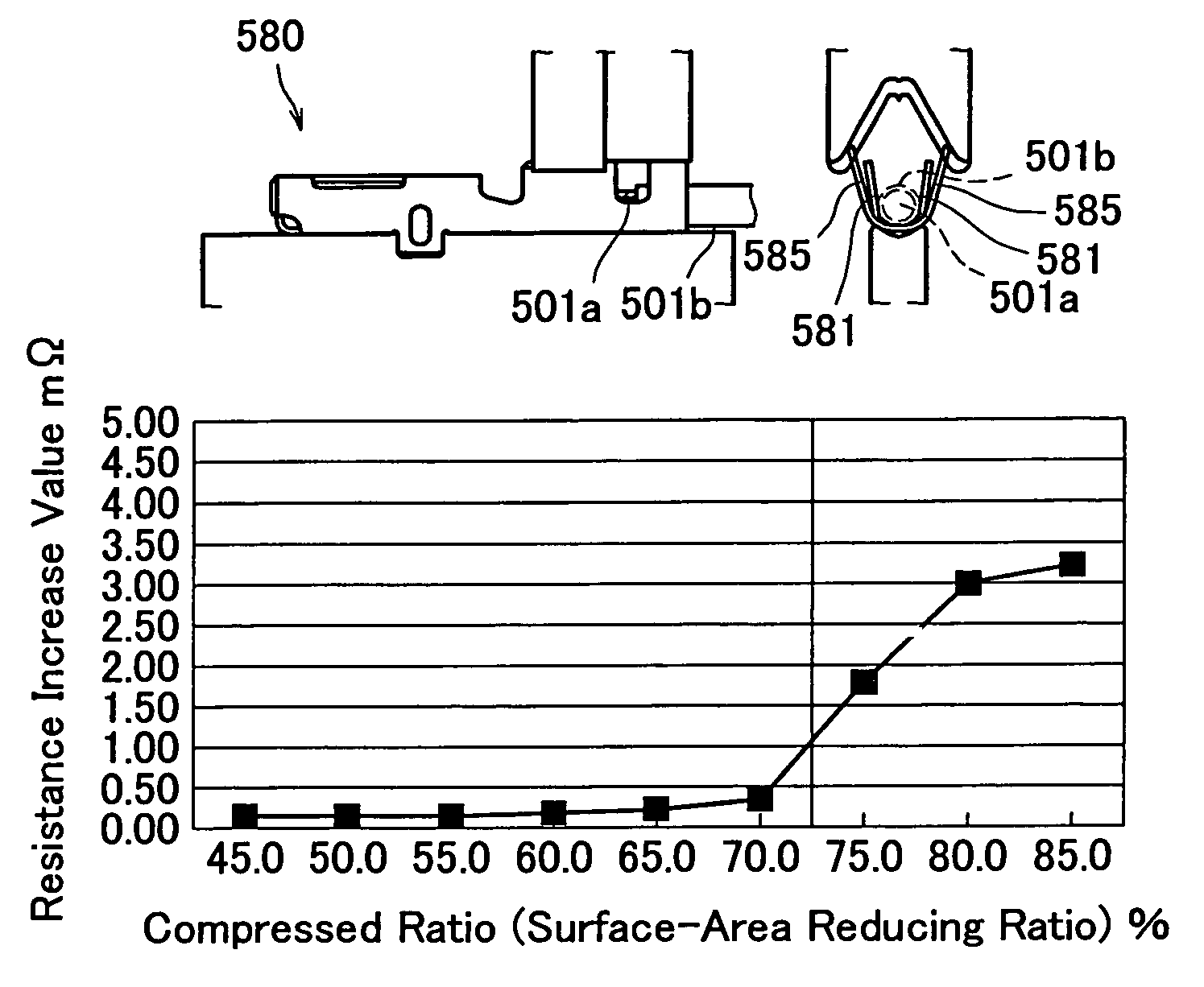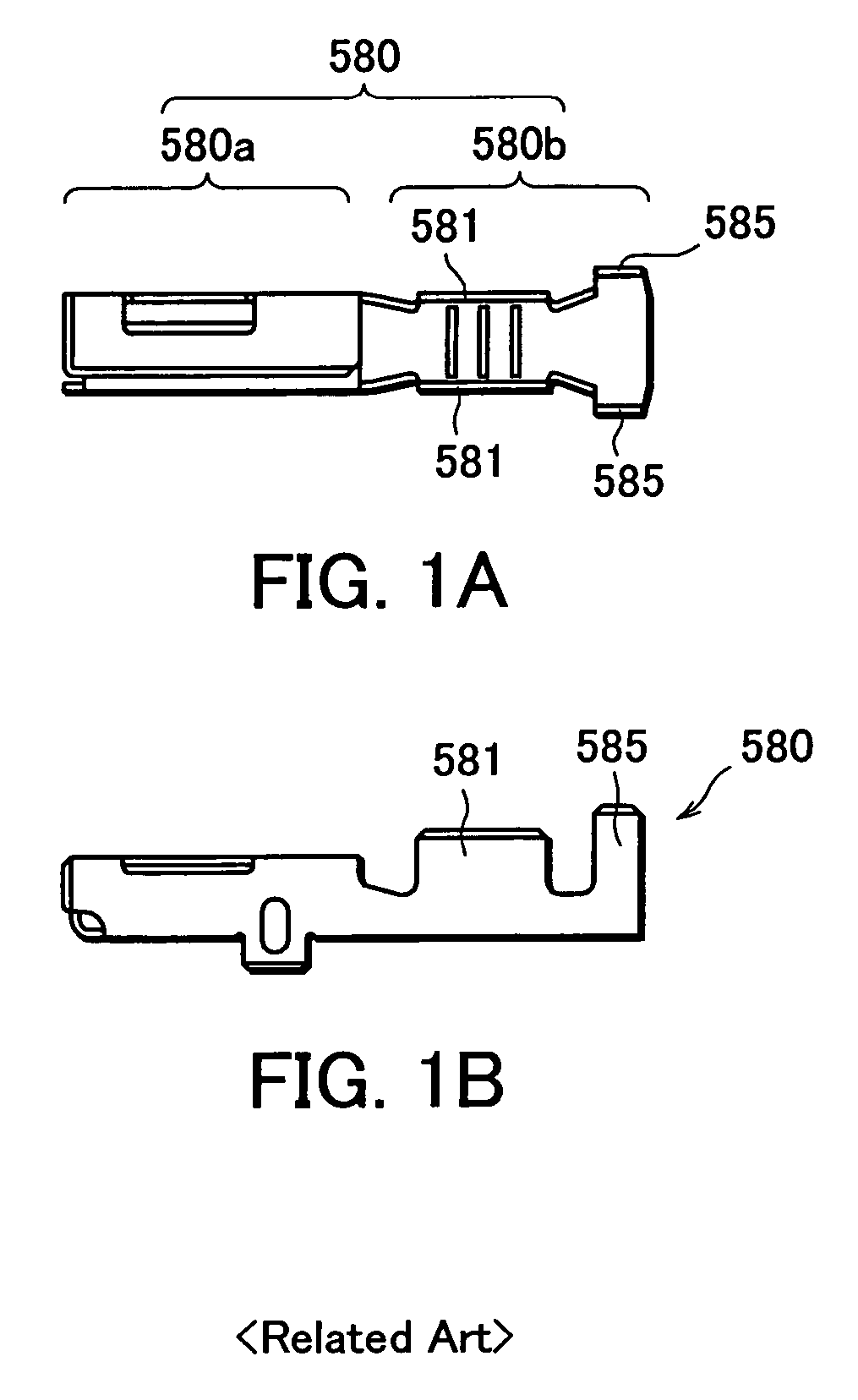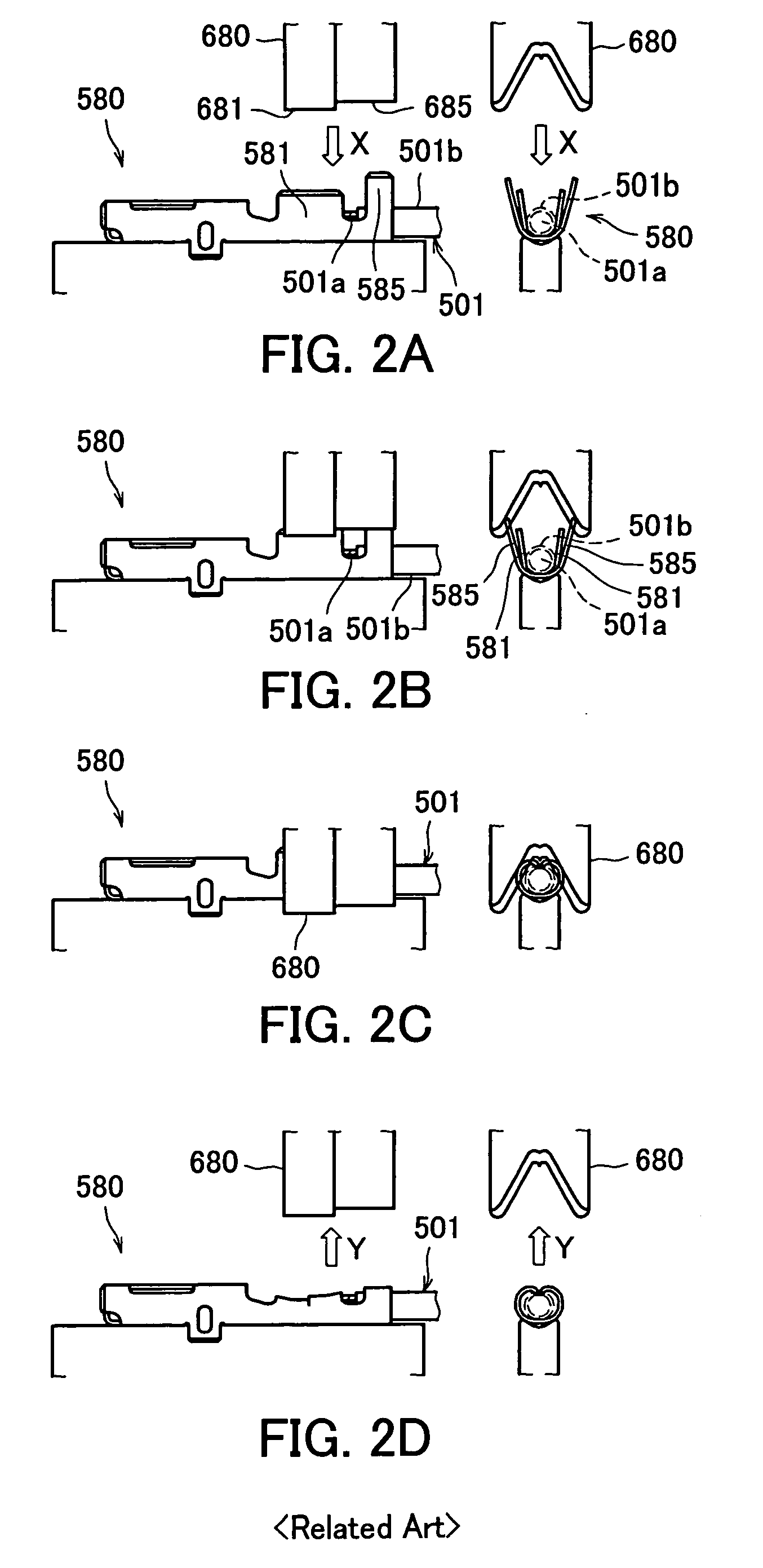Terminal crimping structure and terminal crimping method onto aluminum electric-wire and producing method of aluminum electric-wire with terminal
a technology of terminal crimping and aluminum electric wire, which is applied in the direction of line/current collector details, electrical equipment, and connections effected by permanent deformation, etc., and can solve problems such as defective conduction, conduction defect, and melting
- Summary
- Abstract
- Description
- Claims
- Application Information
AI Technical Summary
Benefits of technology
Problems solved by technology
Method used
Image
Examples
example 1
[0097]Terminals were crimped onto aluminum electric-wires having electrical conductor parts of various cross-sectional areas at various compressed ratios, and there was conducted such a thermal shock test, i.e., a test for continuously and alternately repeating a low temperature environment (−40° C.) and a high temperature environment (120° C.), for these aluminum electric-wires with crimped terminals. Further, the external appearances of the terminal-crimped portions before and after the test were compared with each other, and there were measured the resistance change and the like of the electrically connected portions before and after the test.
[0098]This thermal shock test is suitable for evaluating a connecting ability of a terminal-crimped portion. Further, the thermal shock test was performed by 1,000 cycles.
[0099]Listed in Table 1 are representative resistance increase values between before and after the environmental test (thermal shock test). Further, FIG. 8 shows a graph pl...
example 2
[0119]This Example 2 is to prove why the lower limit value of the compressed ratio is defined to be 40% in crimping a terminal onto an aluminum electric-wire including an electrical conductor part having a cross-sectional area of 1.5 mm2 or more.
[0120]Concretely, the smaller the concrete numerical value of the compressed ratio, the smaller the above described resistance increase value in the similar manner. Meanwhile, in case of an aluminum electric-wire including an electrical conductor part having a cross-sectional area less than 1.5 mm2, the lower limit value of compressed ratio is preferably considered to be 50%, because the crimping strength is considerably deteriorated and the mechanical connecting strength at the terminal-crimped portion is deteriorated when the compressed ratio is less than 50%, i.e., when the electrical conductor's cross-sectional area before crimping the terminal is highly compressed to ½ or less after crimping the terminal. Nonetheless, it has been found ...
example 3
[0138]In the Example 3, the present inventor has adopted an aluminum electric-wire, which is a slightly larger size of 2.5 mm2 and which includes typically used constitution, material, refinement and the like under the condition that the cross-sectional area of the aluminum electric-wire's conductor part is 1.5 mm2 or more, thereby investigating a relationship between the compressed ratio and the crimping strength in this aluminum electric-wire and the terminal. The result thereof is shown in the following Table 3 and FIG. 12.
[0139]
TABLE 3Compressed ratio (%)25.030.035.040.045.050.055.060.065.070.0Terminal120.0146.3169.6186.4195.8204.1218.9235.8247.0274.1crimpingstrength (N)
[0140]As understood from this test result, although the crimping strength is considerably deteriorated when the electrical conductor's cross-sectional area is highly compressed to ½, the crimping strength of 100N can be satisfied even when the compressed ratio becomes less than 50% (½) since larger sizes (mm2) le...
PUM
 Login to View More
Login to View More Abstract
Description
Claims
Application Information
 Login to View More
Login to View More - R&D
- Intellectual Property
- Life Sciences
- Materials
- Tech Scout
- Unparalleled Data Quality
- Higher Quality Content
- 60% Fewer Hallucinations
Browse by: Latest US Patents, China's latest patents, Technical Efficacy Thesaurus, Application Domain, Technology Topic, Popular Technical Reports.
© 2025 PatSnap. All rights reserved.Legal|Privacy policy|Modern Slavery Act Transparency Statement|Sitemap|About US| Contact US: help@patsnap.com



